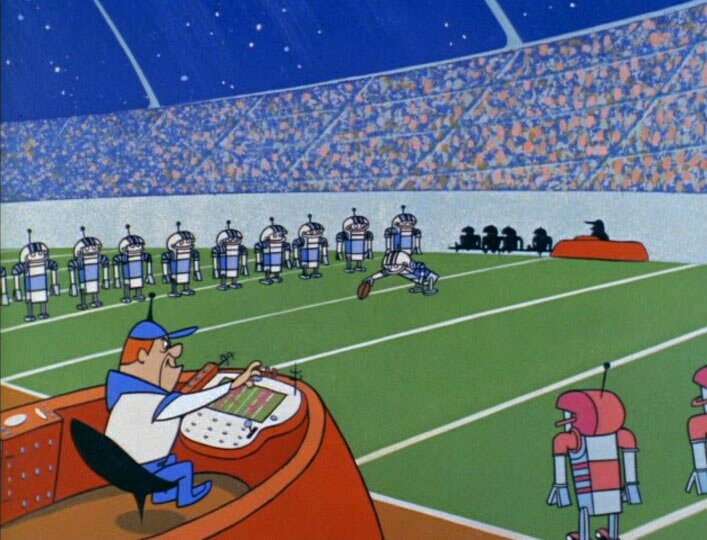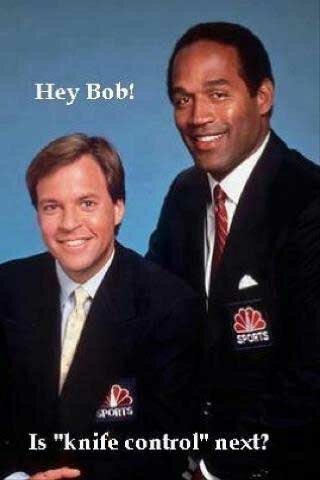Bullying Has Far Reaching Consequences
In seventh grade, I got quite sick with a rather serious case of strep throat leaving me bedridden for about two weeks. I had lost my father two years before, my mother’s sister was killed crossing the street near her home a few months after that, my sister’s fiancee died in a car accident, my favorite sister lost a child during birth, and two months later my niece with Down’s Syndrome, so special to me in ways that bring a tear to the eye just thinking about her now, would die on the operating table. Needless to say I wasn’t the most emotionally stable 13 year old. When I returned to school, I noticed immediately something was wrong. As I climbed the stairs kids were looking away from me, not catching my eye. As I reached the top of the stairs and opened the double doors several boys met me. “Welcome back Kirwin,” one said, then sucker punched me in the face. I fell backward through the doors onto my back.
Before I had gotten sick I had written a list of 10 people I didn’t like called my “Sh*t List”. This list contained the names of popular boys, jocks who called me names during recess and boys who pushed me around in gym – guys I didn’t like. I remember I added the last name, a boy I didn’t have any trouble with but who hung with the guys I didn’t like, simply because I needed to round up the list to 10. I don’t know why I did it, and it wasn’t the last time my writing would lead to trouble. I made the mistake of telling my best friends about this list that I kept in my desk (another mistake), and one of them, a transfer from another Catholic school, decided to take it out of my desk and betray me to those on the list in order to score points with the popular kids.
The last two years at that school were hell for me because of that list and the betrayal. I lost all my friends at school and was shunned by everyone. I remember standing alone in the corner of the playground playing a mental game with the digital clock at a bank across the street, seeing if I could judge when the minutes would change simply through feel without counting, desperate for recess to be over. Outside school my best friends including my personal Judas would hang out with me, but at school I was alone. For the rest of my tenure there I was at the bottom of the social ladder. Those wishing to climb it would push me around to appear tough, boosting their appeal with those at the top. To the girls of the class I was a non-entity, a weakling of no consequence.
My mother was devastated by the same losses I was going through, and she tried everything. We spoke to my teachers, the principal and the pastor. None could offer much help. The principal suggested I could transfer to another school, but then followed up the suggestion with the observation that the bullying and ostracism would follow me there. When my Judas gave me the nickname of the Italian slang word for “penis”, and all the kids in the class started calling me that, my mother suggested I call him the Gaelic word for outhouse. Nice try mom.
The only thing she didn’t try and which I was too scared to do at the time was encourage me to fight back.
Being bullied changed my life. It pushed me onto a deeply destructive path throughout my teens and twenties that finally culminated 13 years ago in the choice of sobriety or a life alone in the gutter. Before the bullying I was a stellar student taking advanced math classes dreaming of a life in Academia. Afterward all I cared about was Oblivion, doing almost anything to achieve it. My grades cratered. I sought the extremes of subcultures and the solace of artists and the drugs and alcohol they called their muses. I suffered flashbacks, waking up with the faces of my 13 year old tormentors in my twenty-something year old mind. It took years of bitter experience, counseling and therapy to finally let go of the anger, the hatred of my tormentors, and the loss of my childhood brought about through Fate and the brutality of children.
With the birth of my son I put my personal experience to work. When he came crying to me about being bullied, I comforted him but I also told him, “Next time, fight back.” As he progressed through school I realized that fighting back against bullies was being discouraged. Teachers and school administrators would punish both children for fighting, refusing to make the effort to determine who was right and wrong, who was the victim and who was the victimizer. I learned an important lesson about public school systems: they always follow the path of least resistance and especially the path of least effort. If a fight broke out they had to have authorities who were nearby and paying attention to what the kids were doing. It’s far easier to not expend the effort to be vigilant and be alerted to a fight after one has started then simply punish both sides.
Imagine cops being called to a domestic violence situation and arresting both aggressor and victim because they didn’t want to take the time to investigate what happened, deciding it’s easier to throw both in jail. Will this deter the batterer next time? No but it will deter the victim from screaming too loud and alerting the authorities.
This is a terrible lesson to teach kids.
What prompted this little bit of soul exposure on the Internet? Bookworm Room’s post, Schools and parents who teach children to become chum for bullies. Bookworm writes, “I cannot believe that a mother told her child to be a punching bag for bullies. Moreover, I cannot believe that a mother told this to her girl child. One of the primary lessons women learn in every self-defense class is this: if you fight back against someone who is assaulting you, you are likely to suffer physical injuries, but you are also much less likely than the passive victim to be raped or killed.”
In adolescence I told my son, “Don’t worry about the School. I’ll take care of them. You just make sure that if you can’t avoid a fight, you inflict as much pain on your tormentor as possible.” I knew this from experience. A busted lip will disappear in days; shame lasts a lifetime.
Bookworm agrees:
Ever since my kids hit school, I’ve given them a single message: Never be the one to start a fight but, if someone else starts the fight, you make sure to end it. And don’t worry about the school’s subsequent response. If you had to use physical force to defend yourself, and if the school attempts to punish you, I will take the school on if I have to go all the way to the Supreme Court. I’ve never had to make good on this promise, since no one has ever physically attacked my kids. I suspect that, with my instruction ringing in their ears, they don’t walk around like shark bait.
I made the Kid a promise. If he gets in trouble for defending himself he has nothing to fear. I would hire lawyers to turn his principal into a Cinco de Mayo pinata in court. I would own the trailers his bullies called “home,” have them moved to our property, set them on fire and roast s’mores in the flames. I’ve backed this up with personal appearances at the principal’s office whenever there was a whiff of trouble. He knows I have his back even when I’m not there, and that confidence itself has deterred trouble. Bullies smell weakness like sharks smell chum. The personal losses I suffered between 1977-1980 weakened me. Had Fate been kinder I suspect I would not have become a target and suffered such life-changing torment.
But the lessons of standing up to bullies go far beyond the school yard. My experience has made me extremely suspicious of authority, whether small town cops, multi-national companies or the Federal Government. It has driven me to stand up to bad bosses and quit jobs rather than suffer torment in the workplace. When a company pisses me off I will fire off letters or even go to court. Neighbors have tried bullying me and received letters from attorneys then been forced to reimburse me for my trouble.
Bookworm Room writes, “I always back up this instruction to my kids by telling them that, had Jews not been conditioned by centuries of oppression to avoid arms, put their heads down, and try to appease authorities, its likely that the Holocaust wouldn’t have happened. Please understand that I’m not blaming those victims. First, no one could ever have imagined what the Germans intended to do. Second, the Jews’ behavior wasn’t a conscious decision. It was the result of a thousand years of conditioning. Israel, thankfully, while not blaming the victims, nevertheless learned the lesson. Like my children, Israel won’t start a fight, but she will finish it.”
We should be teaching our children to fight back and not be victims. Bullies don’t disappear at age 20; they will always be with us so learning how to confront them should be taught as a life skill in our schools.



